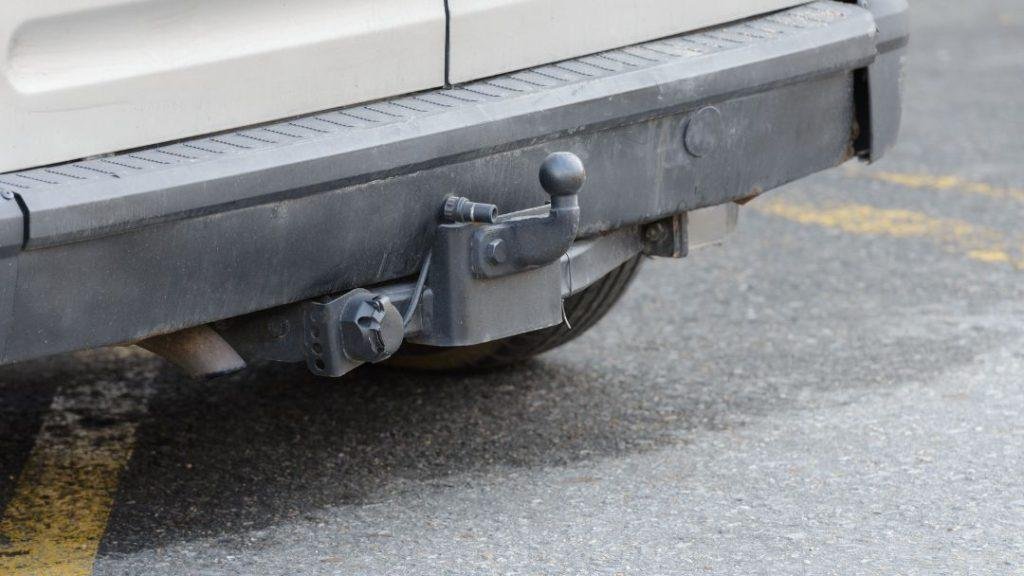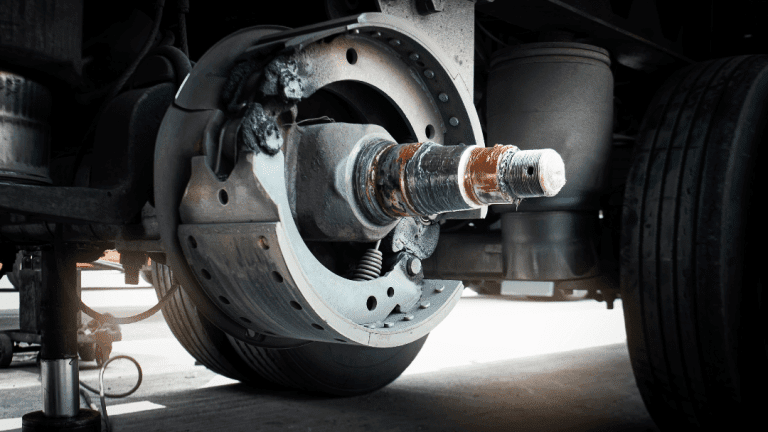When it comes to towing trailers or other vehicles, the type of hitch you use is crucial. A Class 2 hitch is a common type of hitch used in passenger vehicles that can tow up to 3,500 pounds. Generally, large SUVs and trucks are equipped with a Class 3 hitch, which can tow more weight.
But for those who have smaller cars or want to tow smaller trailers, a Class 2 hitch is most suitable. It is important to know what can be towed with a Class 2 hitch because exceeding the weight limit can cause serious damage to your vehicle and put you and others on the road in danger.
Not only is it important to know how much weight your vehicle can handle but also the load distribution and towing capacity of the trailer being towed. In this article, we will discuss what kind of vehicles or trailers can be towed with a Class 2 hitch.
The General Capabilities of a Class 2 Hitch
A Class 2 hitch has a maximum gross trailer weight (GTW) capacity of 3,500 pounds and a maximum tongue weight (TW) capacity of around 350-525 pounds depending on the manufacturer’s specifications. The term GTW refers to the total amount of weight being carried by both the trailer’s axle(s) and its tongue weight while TW refers only to the downward force exerted on the vehicle’s hitch ball by the trailer’s tongue.
To ensure safe operation while towing with a Class 2 Hitch, it’s important that you stay within its limits and adhere to all safety precautions including checking tire pressure and properly securing cargo using straps or tie-downs before hitting the road. Exceeding these limits may result in serious consequences like wheel bearing failure or loss of control over your car during braking when carrying heavy loads.

The Importance Of Knowing What Can Be Towed With This Type Of Hitch
As a driver, it is your responsibility to understand the towing limits of your car. It is essential to ensure that the vehicle’s weight capacity can handle the weight of what it is towing.
By doing so, you can keep yourself and others safe on the road. Oftentimes, people assume that any type of trailer or cargo can be towed with any hitch, but this is not true.
Knowing what kind of vehicles or trailers you can tow with a Class 2 hitch eliminates confusion and prevents damage to your car or trailer. If you plan on towing anything over 3,500 pounds, then it will be necessary to upgrade your hitch or use another vehicle that has a higher weight capacity.
Also, keep in mind that towing requires additional driving skills and knowledge about safety procedures. Plan ahead before taking long trips with trailers to avoid accidents and reduce stress while on the road.
General Guidelines for Towing with a Class 2 Hitch
The Class 2 hitch is one of the most commonly used hitches because it can tow a wide range of loads. However, it’s important to remember that there are general guidelines that should be followed to ensure safe towing. One of the most crucial guidelines is to not exceed the maximum weight capacity of the hitch.
A Class 2 hitch has a maximum weight capacity of 3,500 lbs. This means that the combined weight of your trailer and its contents should not exceed this number.
Exceeding this limit can lead to dangerous situations such as loss of control or even accidents on the road. It’s crucial to weigh your trailer and its contents before hitting the road to ensure you’re within the limits of your Class 2 hitch.
If you are towing close to the maximum weight capacity, then it’s highly recommended that you use a weight distribution system. This system helps distribute the weight evenly between all wheels and axles, which reduces stress on your vehicle’s suspension components and improves handling.
These systems come in different types and sizes depending on your specific needs and type of vehicle being used for towing. A properly installed weight distribution system can make a significant difference in ensuring safe towing while protecting both your vehicle and cargo from damage caused by excessive strain or stress.
Examples of vehicles that can be towed with a Class 2 hitch
Small to mid-sized trailers such as pop-up campers, utility trailers, and small boats
One of the more common uses for a Class 2 hitch is towing small to mid-sized trailers such as pop-up campers, utility trailers, and small boats. These types of trailers are perfect for weekend getaways or DIY projects around the house. A pop-up camper is a great option for those who want to experience camping without having to sleep on the ground in a tent.
These lightweight campers can easily be towed by a compact SUV or car like a Honda Civic or Toyota Corolla. Utility trailers are another popular option for hauling equipment and materials.
They come in various sizes and can be customized with different features like side rails, ramps, and mesh walls. A Class 2 hitch can handle most utility trailer sizes up to its maximum weight capacity of 3,500 lbs.
Small boats like fishing boats or jet skis are also easily towable with a Class 2 hitch. Most of these boats weigh under 3,500 lbs and can be towed by compact cars or mid-sized SUVs.
Compact cars such as Honda Civic or Toyota Corolla can tow small trailers or jet skis
When people think about towing vehicles, compact cars aren’t usually the first thing that comes to mind. However, some compact cars like the Honda Civic or Toyota Corolla have enough towing capacity to handle small trailers or jet skis.
For example, the Honda Civic has a towing capacity of up to 1,000 lbs when properly equipped with a Class 2 hitch. This makes it possible to haul lightweight cargo like bicycles on a bike rack-mounted behind your vehicle.
Similarly, the Toyota Corolla has an available towing package that allows it to tow up to 1,500 lbs. This means it can handle small trailers or jet skis with ease.
Mid-sized SUVs such as Ford Explorer or Jeep Grand Cherokee can handle larger trailers like travel trailers or horse trailers
For those who have larger towing needs, a mid-sized SUV like the Ford Explorer or Jeep Grand Cherokee is an excellent option. These vehicles have a higher towing capacity and can handle larger trailers like travel trailers or horse trailers.
Travel trailers come in many sizes and can be towed by mid-sized SUVs with a Class 2 hitch. These types of trailers are ideal for extended road trips and family vacations.
Horse trailers are another type of trailer that requires a higher towing capacity. They range in size depending on the number of horses you need to transport but typically require at least a Class 2 hitch.
Knowing what you can tow with a Class 2 hitch is essential for safe and efficient towing. From small pop-up campers to large horse trailers, there’s no shortage of options available if you have the right vehicle equipped with the proper hitch.
Towing Accessories
Ball Mounts – Finding the Right Fit
Selecting the correct ball mount is crucial for towing with a Class 2 hitch. There are various sizes and types of ball mounts available depending on the trailer’s weight and height.
Ball mounts come in different drops, where the drop refers to how low the ball sits below your receiver hitch. If you have a small trailer, you will need a small drop ball mount; likewise, if you have a larger trailer, you will need a larger drop ball mount.
Choosing the wrong size can result in an unbalanced load or even cause your trailer to sway. Fixed ball mounts are usually rated for heavier loads than adjustable ones.
They provide better stability as they have fewer moving parts that might wear out over time. Adjustable ball mounts allow for flexibility in adjusting to various towing applications, but they may not be rated for as much weight as fixed options and require regular maintenance.
Hitch Locks – Safeguard Against Theft
When towing with a Class 2 hitch, it’s essential to safeguard against theft by using hitch locks. These locks keep your trailer safe and secure while parked and unattended so that thieves cannot steal it from your vehicle’s back end. Hitch locks come in various styles depending on their size and compatibility with your hitch brand or model.
A coupler lock is one type of hitch lock that prevents anyone from uncoupling your travel trailer from your car or truck without removing the lock first. This type of lock fits over the coupler of your trailer where it connects to our tow vehicle’s hitch receiver, making it challenging for thieves to remove without damage.
Wiring Harnesses – Connecting Your Trailer Lights
Wiring harnesses connect your vehicle’s electrical system to your trailers’ lights so you can signal turns and brake lights while towing safely. They vary in size, length, and connector types, depending on the trailer’s size and weight. Your vehicle’s owner manual should specify which wiring harness you need for your specific vehicle model.
Custom-fit wiring harnesses are often the best choice as they plug directly into your vehicle’s electrical system and usually come with all the necessary hardware to install them. Universal wiring harnesses are more economical but might require additional wiring or a splicing tool to install.
Conclusion
Towing with a Class 2 hitch requires attention to detail and careful consideration of the accessories needed to get the job done safely and efficiently. Ball mounts, hitch locks, and wiring harnesses play an essential role in ensuring that your trailer stays secure while on the road.
By following these guidelines and utilizing these tools correctly, you can take full advantage of everything your Class 2 hitch has to offer without worrying about safety concerns or theft. Remember always to check your owner’s manual for specific guidance regarding towing capacity and recommended accessories before hitting the road!



